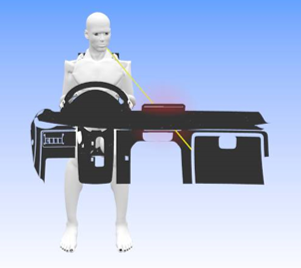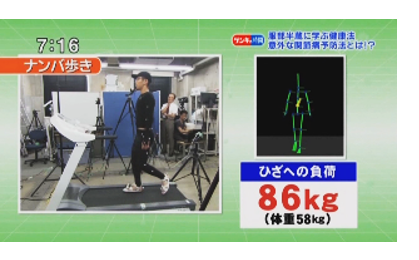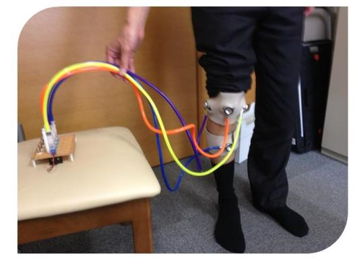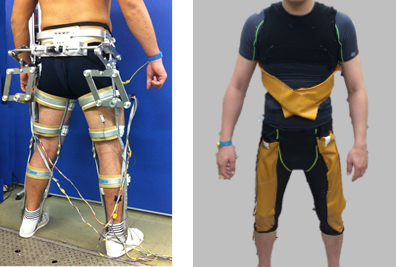This research group focuses on modeling technology for multi-degree-of-freedom dynamical systems (multibody dynamics) and is engaged in research and development of mechanical system engineering technology (human-centered design) that is truly useful for human life. In research related to welfare engineering and rehabilitation engineering, we often conduct joint research with medical professionals. Joint research with companies is also active.
We are working on the development of digital human technology that digitizes (models) the mechanical characteristics of the human musculoskeletal system and the movement control characteristics of the cranial nervous system, and makes it possible to reproduce and analyze human body movements on a computer. In particular, he has many achievements in research on gait simulation that generates gait motion, including anthropological applications such as evolutionary calculation of upright bipedal walking, and rehabilitation such as prosthetic leg gait simulation and elderly gait simulation. We are currently conducting research on applications. In addition to walking motion, we are also conducting research on the evaluation of driving operability using an automobile occupant model, bicycle pedaling motion, and even the development and research of a Japanese macaque quadruped walking model.

- 拡大
- Prosthetic walking simulation

- 拡大
- Visibility evaluation model for vehicle driving operation system
In order to develop devices that are closely related to human physical movements, such as welfare devices such as wheelchairs and prosthetic legs, or automobile driving control systems, it is necessary to understand the movement characteristics of humans and the body, and to understand those characteristics and the power of the devices and tools. It is important to understand the mechanical interrelationship with mechanical properties. Based on the above-mentioned digital human technology, we are conducting research on technology for measuring body movement and evaluation technology for equipment and tools related to human movement. Specifically, we are conducting measurement and evaluation research targeting walking support devices such as walking poles and foot supports, and automobile steering operations. We are also working on the development of new measurement and evaluation techniques, such as diagnosing knee osteoarthritis using joint sounds.

- 拡大
- Biomechanical analysis of number walking (cooperation with TV program)

- 拡大
- Knee osteoarthritis diagnosis system based on joint sounds
By making full use of the aforementioned digital human technology, measurement and evaluation technology, etc., we are also working on the development of new health and welfare equipment based on scientific evidence. Examples of our research include the development of active and passive walking assist devices that focus on trunk movements, and the development of driving simulators for evaluating automobile driving assistance devices for people with disabilities.

- 拡大
- Walking assist devices that focus on trunk movement (motor-driven type (left figure) and passive rubber-driven type (right figure))

- 拡大
- Driving simulator for evaluating automobile driving assistance devices for people with disabilities
Video of Hase Laboratory's research explanation
